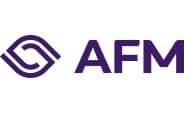This news is older than 3 years. Therefore it is possible that the information is no longer valid.

What topics should listed companies be mindful of when preparing their reports for 2022?
The Dutch Authority for the Financial Markets (AFM) and the European Securities and Markets Authority (ESMA) would like to take this opportunity to ask listed companies to pay extra attention to certain key areas when preparing their reports for 2022. Among others, these areas relate to connectivity between a company's non-financial statement and the other components of the financial reporting, including the financial statements. In reviewing the reports for 2022, the AFM will specifically pay attention to these focus areas.
The focus areas identified are important to listed companies that are preparing their reports for 2022, but also to audit committees that monitor the reporting process and audit firms that audit companies' reports. The aforementioned focus areas were chosen, among others, on the basis of the findings of a thematic review on connectivity in reporting, carried out in 2022.
Ensure that information in the non-financial statement is cohesive and complete
Large listed companies that employ more than 500 persons are required to include a non-financial statement in their management report. Among others, in that statement companies shall report on how it deals with the environment, people and corruption. The AFM expects companies to include cohesive and complete information on their policies with regard to all material topics in their reporting, along with the relevant performance indicators. They may draw on EU guidelines in doing so.Present alternative performance measures in a clear and transparent manner
It is important that companies include clear information on alternative performance measures (APM) such as EBITDA, net debt and assets under management, but also financial measures pertaining to ESG-related aspects, such as green revenue and green CAPEX. An APM is a financial measure of a company's historical or future financial performance, financial position or cash flows (unless the APM is determined by law, as is the case with statutory capital requirements). In order to present their APM in a clear and transparent manner, companies must apply the EU guidelines on alternative performance measures. This will make the measures more comparable, more reliable and easier to understand for users of the information.Connectivity between disclosures regarding non-financial information and the figures presented in the financial statements
Investors, analysts and other stakeholders are increasingly focusing on the impact of ESG issues (such as climate change) on a company's financial performance and position. The AFM expects connectivity between the information presented in the non-financial statement and in the other components of the financial reporting, including the financial statements. This will help investors make (economic) decisions. The AFM will particularly assess the way in which companies present their net-zero objectives and their scope 3 disclosures.Clear and specific disclosures regarding net-zero objectives
Companies often express their climate change reduction objectives as net-zero or carbon-neutral objectives. However, many companies fail to demonstrate clearly how they expect to realise these objectives or what relative impact the measures will have. The AFM expects companies to explain explicitly and in considerable detail how they intend to realise their objectives and what the specific contribution of these measures will be. Furthermore, companies are expected to be transparent about uncertainties with regard to the efficacy and feasibility of their measures.Disclosures on scope 3 greenhouse gas emissions as specified in international standards
When formulating their climate change reduction objectives, companies use the scopes specified in the Greenhouse Gas Protocol to quantify their greenhouse gas emissions and reduction targets. Many businesses only provide disclosures on their Scope 1 and 2 emissions, which relate to the direct and indirect carbon dioxide emissions of the business itself. The AFM urges companies to include a disclosure on their scope 3 emissions in their reporting as well. Scope 3 concerns emissions generated by activities undertaken outside the business but in its value chain, both upstream in the direction of the business (e.g. by suppliers) and downstream (in the direction of the company's customers). The emissions generated by car leasing and air travel also fall in this category. Scope 3 emissions tend to make up the biggest part of a company's carbon dioxide emissions.ESMA: relevant climate-related information and the impact of macroeconomic conditions
The European supervisory authority ESMA has recently released its annual Public Statement, in which it outlined which themes ESMA itself and the member states' own supervisory authorities will focus on in reviewing companies' reports for 2022. Like the AFM, ESMA emphasised the increasing importance of clear and relevant climate change-related information and the connectivity between a company's non-financial statement and the information presented in the other areas of a company's financial reporting, including the financial statement. ESMA also pointed out the importance of balanced reporting and the provision of clear disclosures with regard to transition plans, measures and targets.The AFM and ESMA have also urged companies to provide transparency about the impact of macroeconomic conditions, such as the remaining pandemic-related effects, rising interest rates, inflation/hyperinflation and geopolitical conditions.
Contact for this article

Would you like to receive the latest news from AFM?
Subscribe to our newsletter, we will keep you up-to-date.